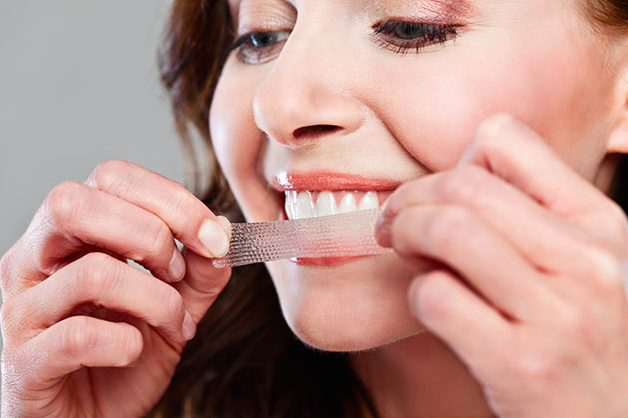
Who doesn’t want a beautiful smile?
It turns out there are some surprisingly serious reasons why bright white teeth that are straight and clean matter so much to so many people.
According to The Smile Survey (carried out on behalf of Invisalign, makers of clear, essentially invisible, braces) an attractive smile carries a lot of weight:
- 29 percent of Americans notice the smile before any other facial feature.
- 24 percent say it’s also the facial feature they remember most after a meeting.
- Job applicants with attractive smiles are up to 45 percent more likely to get a job when competing with applicants with unattractive smiles.
- They are also expected to be up to 58 percent more successful and 58 percent wealthier than their colleagues.
- Those with attractive smiles are 21 percent more likely to be seen as happy, 47 percent more likely to be viewed as healthy and 38 percent more likely to be perceived as smart.
- Finally, 73 percent of Americans would be more likely to trust someone with a nice smile than someone with a good job, outfit, or car.
What we do for a more attractive smile
Whew! It’s no wonder cosmetic dental work, including non-medical orthodontics, cosmetic oral surgery, and teeth whitening are so popular today. Whether you believe these common attitudes are justified or fair, the fact that they exist as part of our culture can put social pressure on anyone with teeth that naturally appear “imperfect”, even if they’re technically healthy.
When it comes to orthodontics or elective surgery to improve your smile, you’re going to be working with trained and experienced professionals who are highly skilled and knowledgeable. There’s little risk of negative results beyond some temporary discomfort.
"Many Americans who are actively trying to achieve a whiter smile are handling the process themselves with over-the-counter or prescription products they’ve purchased."
Teeth whitening is a different story, though.
Although teeth whitening is a service professionals offer — possibly including your own dentist — many Americans who are actively trying to achieve a whiter smile are handling the process themselves with over-the-counter or prescription products they’ve purchased.
As a result, there’s an inherent level of risk involved. Here’s a brief rundown of how DIY teeth whitening can potentially harm your teeth, and what you can do to avoid negative results.
The risks and drawbacks of DIY teeth whitening

Only licensed dentists and medical professionals can legally obtain and use certain chemicals approved by the FDA to whiten your teeth. That doesn’t mean that every DIY teeth whitening kit on the market is dangerous or ineffective, but it could mean that they won’t work as well as the professionally applied version.
The whitening gel used by dentists is designed to absorb into teeth on the microscopic level through your naturally porous enamel layer and be retained by the tooth at the level of the dentin, where the actual color of the tooth is determined. Since kits made for home use don’t follow the same process, their active ingredients are generally combinations of hydrogen peroxide and/or varieties of bleach (to chemically remove stains and whiten the enamel,) or, in some cases, abrasive pastes (to grind the stained layer of enamel off the tooth.) This includes the trend of brushing your teeth with a paste made from activated charcoal. However, this “all natural” whitening option is actually akin to sanding your teeth.
This is especially problematic when using products found online. The stringent chemicals these products may contain not only strip away stains, but can also damage enamel.
The Telegraph newspaper did an investigative report in which they examined the stories of patients who used at-home whitening kits and ended up harming themselves. Some of the patients interviewed for the story even needed skin grafts to repair the damage these products caused to the sensitive tissue inside the mouth and the surface of the gums.
According to a dentist quoted in the article, “some home teeth whitening kits available on the Internet can contain a solution of hydrogen peroxide up to 250 times stronger than the legal limit.” The dentist went on to say that “some companies are using bleaches like those used to clean swimming pools.”
Obviously, if you knew before trying a teeth whitening product that it contained caustic, poisonous chlorine bleach, or incredibly dangerous levels of hydrogen peroxide, you wouldn’t consider going forward with the treatment. But most consumers are drawn in by the product’s marketing and may not review the details. Although these products will probably whiten your teeth (at least temporarily), using them can cause lasting damage to your teeth and gums, likely requiring expensive and painful corrective treatments.
As important as a beautiful smile is, it’s not important enough to risk your long-term oral health.
What should you do instead?
Your best option for the safest and most effective teeth whitening available is to visit your dentist. Even if he or she doesn’t offer the service themselves, they may be able to connect you with reputable providers in the area who do.
Of course, there’s cost involved in cosmetic dental services, and many insurance plans won’t cover teeth whitening. As an alternative to insurance, some dental discount plans do include teeth whitening, so you may be able to get a significant discount off the retail price by joining a dental discount plan and visiting a provider that participates in it.
If you’d still prefer to go the DIY route, speak to your dentist about what products and methods he or she recommends and do your due diligence before beginning the treatment. Overall, it’s likely a safer decision to purchase your kit from a pharmacy as opposed to sight-unseen online. And, in this case, you get what you pay for, so expect to invest if you care about maintaining your oral health throughout the whitening process.
With this information in mind, you are on your way to achieving the beautiful, attractive smile you’ve always wanted. But remember to do so carefully, with your dentist’s help.
Interested in learning how you can save on cosmetic dental treatments and procedures? Click the button below to find a dentist participating in our discount dental plan:

